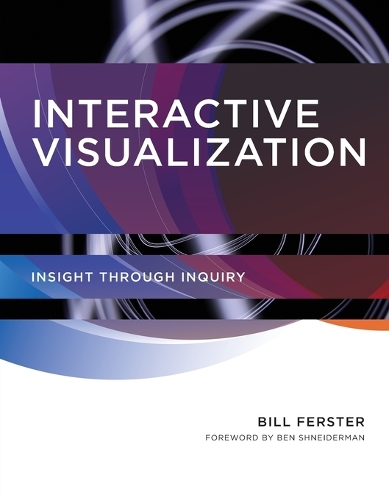
Interactive Visualization: Insight through Inquiry
(Paperback)
Publishing Details
Interactive Visualization: Insight through Inquiry
By (Author) Bill Ferster
Foreword by Ben Shneiderman
MIT Press Ltd
MIT Press
16th May 2023
United States
Classifications
Tertiary Education
Non Fiction
Information visualization
Internet and digital media: arts and performance
006.7
Physical Properties
Paperback
296
Width 178mm, Height 229mm
369g
Description
A guide to fundamental issues in designing interactive visualizations, exploring ideas of inquiry, design, structured data, and usability. Interactive visualization is emerging as a vibrant new form of communication, providing compelling presentations that allow viewers to interact directly with information in order to construct their own understandings of it. Building on a long tradition of print-based information visualization, interactive visualization utilizes the technological capabilities of computers, the Internet, and computer graphics to marshal multifaceted information in the service of making a point visually. This book offers an introduction to the field, presenting a framework for exploring historical, theoretical, and practical issues. It is not a "how-to" book tied to specific and soon-to-be-outdated software tools, but a guide to the concepts that are central to building interactive visualization projects whatever their ultimate form. The framework the book presents (known as the ASSERT model, developed by the author), allows the reader to explore the process of interactive visualization in terms of choosing good questions to ask; finding appropriate data for answering them; structuring that information; exploring and analyzing the data; representing the data visually; and telling a story using the data. Interactive visualization draws on many disciplines to inform the final representation, and the book reflects this, covering basic principles of inquiry, data structuring, information design, statistics, cognitive theory, usability, working with spreadsheets, the Internet, and storytelling.
Author Bio
Bill Ferster is on the faculty of the University of Virginia with a joint appointment to the Center for Technology and Teacher Education at the Curry School of Education and at the Science, Humanities, and Arts Network of Technological Initiatives (SHANTI) at the College of Arts and Sciences. Ben Shneiderman is Professor of Computer Science and Founding Director (1983-2000) of the Human-Computer Interaction Laboratory at the University of Maryland, College Park.
